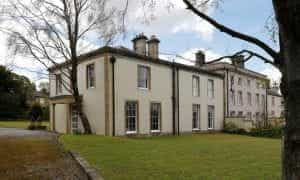House Raffle Organisers Get UKGC Warning on Lottery Legality
The UK Gambling Commission has waded in after the owner of a Lancashire mansion resorted to conducting a raffle in order to sell the £800,000 property for just £2 a ticket.

Melling Manor. ?The Guardian
The 18th century country home, Melling Manor, was won by finance worker Marie Segar who also won the title of Lady of Melling. The news made headlines and prompted the UKGC to intervene and remind homeowners to avoid breaking gambling laws.
House sales in the UK have been on the decline and the market predicament has forced owners to find new and innovative ways to sell up. However, the potential punishment for instigating these so-called ‘house raffles’ is a jail sentence of 51 weeks and a fine of up to £5,000.
Current gambling legislation states that games entirely based on luck, such as raffles, are only allowed if they raise money for charitable causes. Lotteries, raffles and tombolas can otherwise only be legal if they feature an element of skill, or if the operator has obtained a licence for the activity. In 2016 alone, such events raised £230 million for good causes.
Seller Dunstan Low donated £30,000 to the St John’s Hospice in North Lancashire, and has no regrets about the way he sold the property.
I wouldn’t change a thing. It was stressful but it has been an amazing experience. I want congratulate Marie on her win and I really hope that she enjoys the house Dunstan Low, Property Seller
Low, 37, was having trouble finding a buyer for the house on the open market, but he managed to raise almost £900,000. The graphic designer claimed people as far away as Russia, China and Mauritius had entered the prize draw.
House raffles have surged in popularity recently, and the UKGC posted an update on its website to prevent gambling law violations moving forward.




